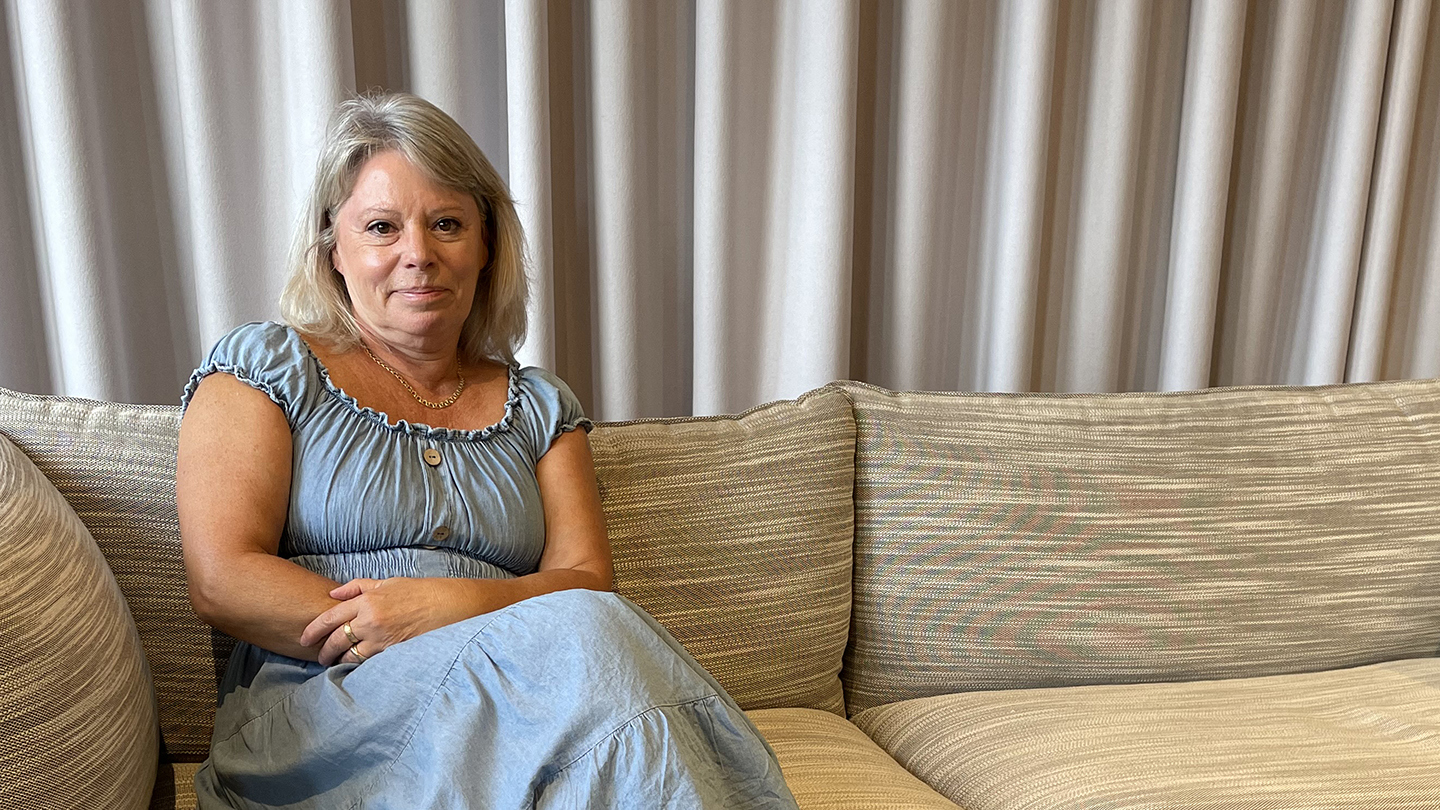She wants to give patients meaningful waiting times using digital technology
2024-09-18

She joined the University of Borås from Jönköping University, but her focus on cancer patient care began at the University of Gothenburg and Sahlgrenska University Hospital over 25 years ago.
“I have been passionate about oncological nursing throughout my time as a nurse, and as a researcher, I focus on care during and after cancer treatment, looking at symptoms, quality of life, and health, which are close to my heart,” she explained.
During her time as a nurse and researcher at the University of Gothenburg and Sahlgrenska University Hospital, she and a group of colleagues conducted several projects on palliative care to train students in dealing with seriously ill patients. One of the projects was a learning game.
“We developed a prototype, but unfortunately, we couldn’t proceed to develop a complete game as it would have been too expensive within the project,” she said.
Developing apps for radiotherapy patients
One project that was completed and is now available in the App Store is an app called My Radiotherapy (Min strålbehandling in Swedish). It is aimed at cancer patients who can ask questions and get answers from a virtual nurse about radiotherapy. Also in development is the possibility of taking a virtual tour of the radiotherapy facilities in Gothenburg and Borås via a VR solution, virtual reality.
She has brought her work on developing and using digital technology to the University of Borås, where she now leads three projects to develop tools and apps aimed at breast cancer patients and nursing students at both undergraduate and advanced levels.
“Right now, we are working on a digital tool, Digi Do, which is an information tool to support women with breast cancer before radiotherapy. Another project is the DIBH-App, which will be used for training in deep breathing techniques before upcoming radiotherapy for left-sided breast cancer,” she explained.
The latter project involves a mobile app along with a sensor band around the chest to practice at home how to breathe and hold one’s breath to reduce the risk of radiotherapy affecting the heart.
AI project for extensive training in difficult conversations in palliative care
Together with ICT educators at Edutech at the University of Borås, an AI tool is currently being developed for nursing students at various levels to train in existential conversations in palliative care.
“Together with Edutech, staffed by ICT educators at the University of Borås, we are building various simulation scenarios with avatars using AI and ChatGPT. The program provides students with extensive training, where they can ask questions to a fictional patient or relative who can then give different kinds of responses.”
In her research, Maria Brovall asks what is important for those being researched, namely the patients, their relatives, and the healthcare staff.
“Our research is not measurable in quantity, but through qualitative interviews about how the target groups experience the apps we develop. We are looking for what is clinically relevant, what it means for the people we research, and we want to know if our research has made any difference for them,” she explained and continued to talk about the problem of integrating technology into clinical practice:
“A lot of new things are being created in IT, but it is difficult to keep this type of project alive as it is so expensive to develop all the way. It is demanding and difficult to transfer ownership and management of the digital tools we develop. But we are helping the Region Västra Götaland to try to secure funding so that our evidence-based digital tools can continue to live on as we see that they make a difference, not only for the patients who have tested them, but also the staff see benefits for the operations.”
Maria’s research is largely about transforming meaningless waiting for treatment into meaningful waiting, where the patient, and also relatives, can prepare at home. They get answers to many of their questions through the apps, which nurses also notice when the patient comes for radiotherapy.
“If you want to make a difference in healthcare, you should work with both the patients and their relatives,” she concluded.
Maria Brovall earned her PhD at the University of Gothenburg in 2000. Before joining the University of Borås, she held an associate professorship at Jönköping University.
Read more
About the projects
Solveig Klug
Solveig Klug

